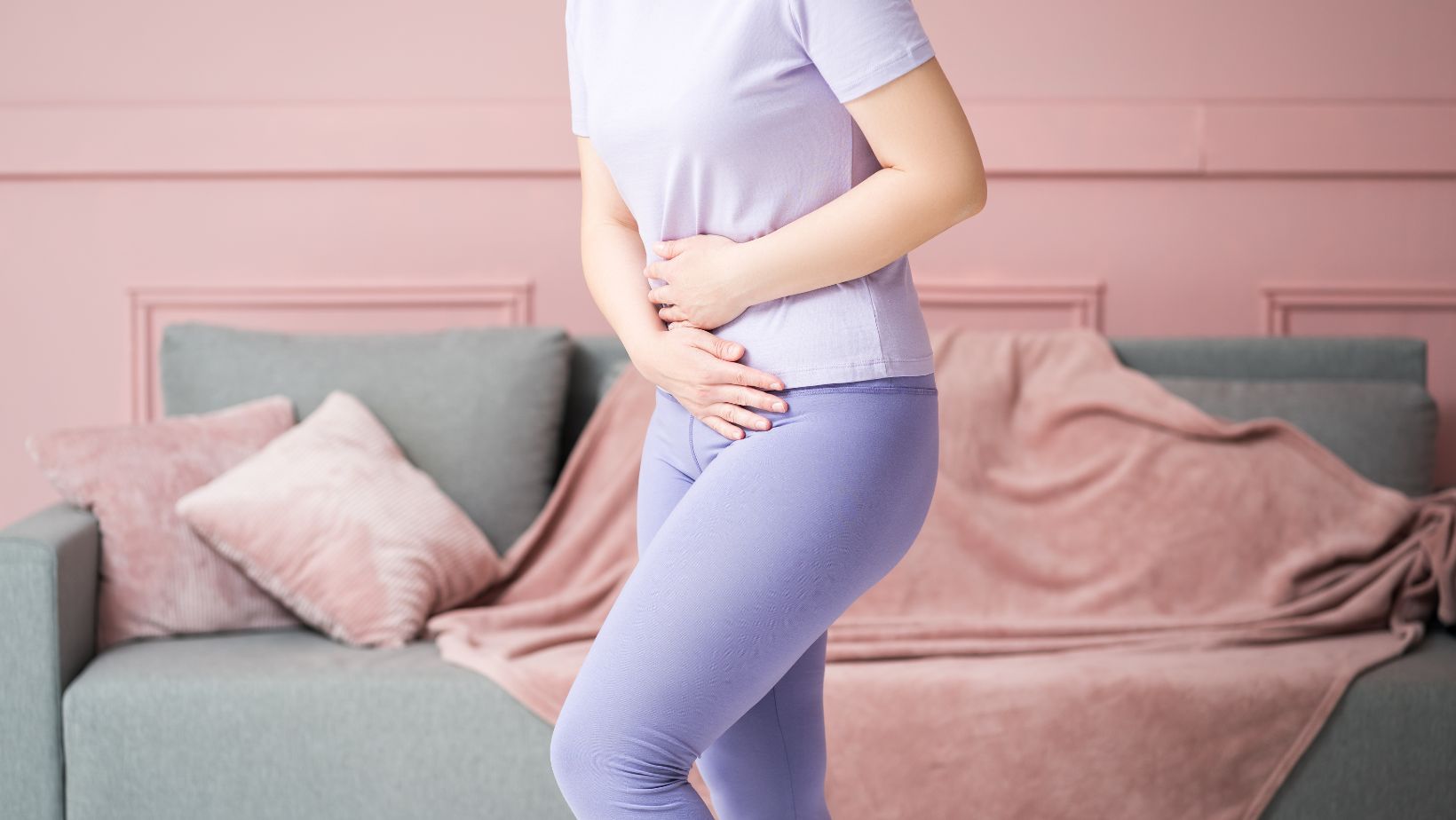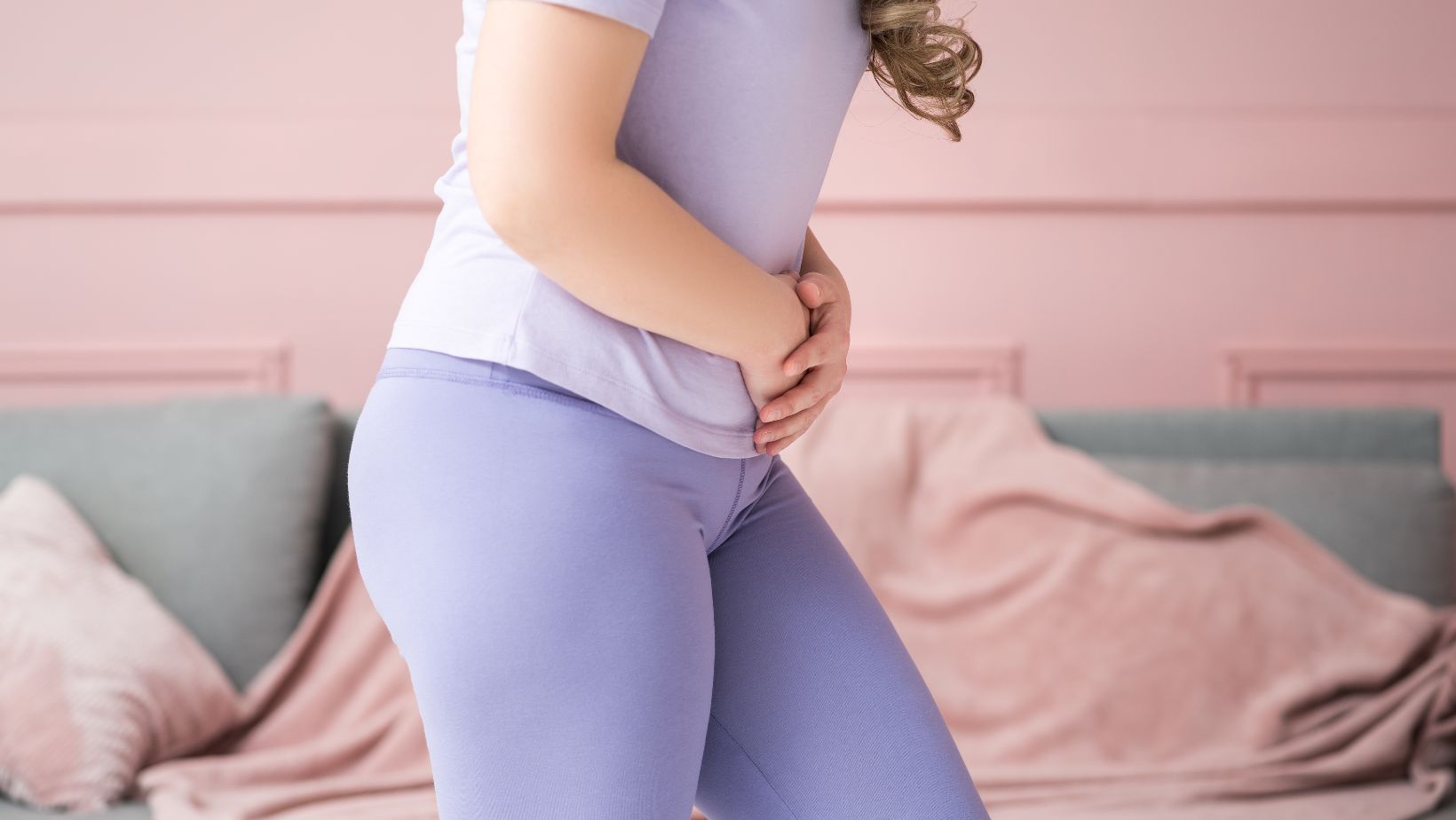
Premenstrual syndrome (PMS) is a complex interplay of hormonal, emotional, and physical symptoms experienced by many women in the days preceding menstruation. Characterized by fluctuations in estrogen and progesterone levels, PMS can lead to mood swings, bloating, cramps, and other discomforts.
This article looks into the scientific causes and impacts of PMS, exploring its physiological mechanisms and the best strategies to manage its multifaceted effects on women’s health and well-being. Get the relief you deserve from PMS with women’s vitamins and best lifestyle practices and strategies in this guide.
What Is PMS?
Premenstrual syndrome, often abbreviated as PMS, is a combination of physical, emotional, and psychological symptoms experienced by many women in the days leading up to their menstrual periods. It often announces its arrival through mood swings, bloating, cramps, and various other discomforts. 
Recognized within the medical community, PMS varies in intensity and expression from woman to woman. While some may sail through this phase relatively unscathed, others find themselves grappling with a range of symptoms that disrupt their daily lives.
The Science Behind PMS
At the heart of PMS lies the delicate balance of hormones in a woman’s body, particularly estrogen and progesterone. As the menstrual cycle progresses, these hormones ebb and flow, influencing neurotransmitters like serotonin and dopamine, which regulate mood.
These hormonal fluctuations can trigger PMS symptoms, leaving women navigating through emotional turbulence and physical discomfort. When you understand the balance of hormones, you can better navigate the complexities of PMS and find ways to manage its effects.
As hormones balance — or become unbalanced — emotions can soar and dip dramatically during PMS. From feeling overwhelmed and irritable one moment to tearful and sensitive the next, the emotional rollercoaster of PMS can be a tumultuous ride.
Understanding these emotional changes is key to navigating through this phase with grace. Simple practices like mindfulness, breathing exercises, or engaging in activities that bring joy can help women manage these emotional fluctuations effectively. It’s also useful to simply recognize that sudden mood changes often have physical causes.
What Are the Physical Symptoms of PMS?
Physical symptoms during PMS can manifest in various ways, ranging from bloating and breast tenderness to headaches and fatigue. These discomforts can disrupt daily activities and affect the quality of life for many women.
Adopting lifestyle changes such as regular exercise, maintaining a balanced diet, staying hydrated, and ensuring an adequate sleep schedule can help alleviate physical symptoms.
Additionally, incorporating women’s vitamins rich in essential nutrients like vitamin B6, magnesium, and calcium can help manage physical discomfort during PMS.
What Are Some Coping Strategies for PMS?
Dealing with PMS requires a tailored approach that combines coping strategies with self-care practices. Activities that promote relaxation and stress reduction, such as yoga, meditation, or spending time in nature, can help ease the emotional distress often associated with PMS.
Seeking support from loved ones or a healthcare professional, practicing good sleep hygiene, and maintaining a journal to track symptoms and triggers are effective self-care strategies. These empower women to manage the challenges of PMS by promoting emotional well-being and enhancing symptom awareness for tailored management.
Understanding the relationship between PMS and overall menstrual health is crucial in fostering a holistic approach to well-being. Factors like regular exercise, a balanced diet, stress management, and adequate rest contribute to maintaining optimal menstrual health.
Tracking menstrual cycles, being mindful of changes in symptoms, and seeking medical advice for persistent or severe PMS symptoms are crucial elements in prioritizing menstrual health. These proactive steps contribute to overall wellness by fostering a deeper understanding of individual patterns and ensuring timely intervention when needed.
Women’s Vitamins for Relief
Women’s vitamins can be very effective at supporting overall health and managing PMS symptoms. Certain vitamins and minerals play key roles in alleviating specific symptoms associated with PMS.
For instance, vitamin B6 aids in regulating mood and reducing bloating, magnesium helps ease muscle cramps and headaches, and calcium can support bone health and relaxation. A well-rounded supplement regimen that includes these essential nutrients can complement a balanced diet and contribute to better PMS management. For those looking to manage PMS symptoms as part of their overall health, nurx.com offers access to licensed medical providers and resources designed to support women’s health needs.
Empowering Women With Knowledge and Care
Understanding the multifaceted nature of premenstrual syndrome is key to navigating its challenges with resilience and grace. By talking about the science behind PMS and embracing self-care strategies, women can empower themselves to manage the physical and emotional rollercoaster more effectively.
Prioritizing menstrual health and incorporating women’s vitamins rich in essential nutrients can enhance overall well-being. This holistic approach tackles PMS and promotes a healthier, balanced lifestyle for women worldwide.







